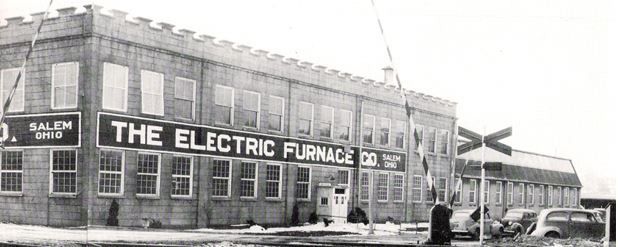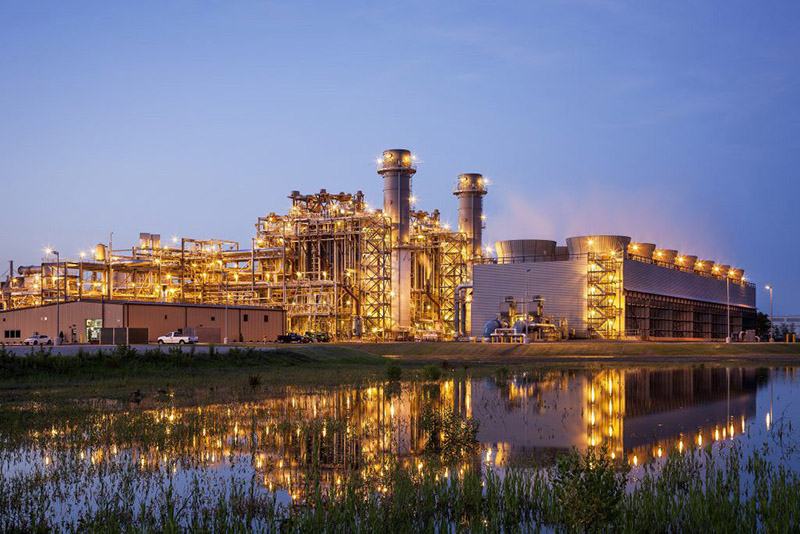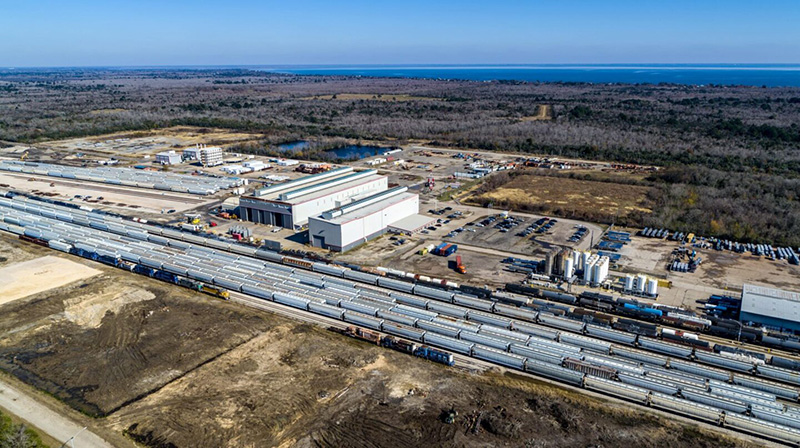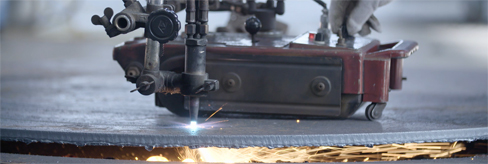For 200 years, John Cockerill has spearheaded innovations across multiple sectors like energy, defense, and industry, thanks to our history of manufacturing evolution, entrepreneurial spirit, and technological innovation. Over time, as our world population grew and consumed more resources, our focus shifted to focus on renewable energy and hydrogen technologies that improve the efficiency of our resource consumption and contribute to a more sustainable future for us all. We've since become a sought-after partner for hydrogen generation companies and a well-established partner in Europe and in China, and now John Cockerill is expanding our hydrogen business to North America, where it will join other John Cockerill segments in the defense and industrial spaces. Once up-and-running, our unique large-scale technical solutions for hydrogen—combined with our other energy offerings—will help the region get closer to its carbon reduction goals.
A history of innovation with European roots
Our company was founded in 1817 by the visionary John Cockerill, born in 1790 in Lancashire, England. He inherited a passion for engineering from his father, and upon the family's relocation to Belgium in the early 19th century, John Cockerill seized the opportunity to establish his first factory in Seraing in 1817. He bought the Castle of Seraing, having been entrusted by King William I of the Netherlands with the development of the steel industry in the Liège area. This marked the genesis of what would become one of the most influential industrial enterprises in Europe.
The new company retained the name of our founder and initially focused on textile machinery, aligning with the prevailing industry in the region. However, in 1826, the introduction of the first steam locomotive on the European continent signaled a shift, and the John Cockerill company soon diversified to produce a wide array of heavy machinery, including steam engines and rolling mills. Thanks to our commitment to innovation and technological advancement across industries, John Cockerill soon became synonymous with cutting-edge engineering, attracting skilled professionals and contributing significantly to the industrial prowess of Belgium.
The latter half of the 20th century witnessed strategic shifts in the John Cockerill company's operations. Mergers and acquisitions became integral to our growth strategy, expanding our influence and capabilities. The acquisition of companies in diverse sectors, including shipbuilding and steel production, further enhanced our standing as an industrial powerhouse.

EFCO in Salem, Ohio acquired by John Cockerill
Meeting the needs of our time
In the 21st century, John Cockerill began investing more fully in technologies in the energy, hydrogen, industrial, and environmental sectors to address the challenges of climate change and promote sustainable development. Our company’s dedication to advanced technologies is not only driven by a sense of environmental responsibility but also by recognizing the market demand for clean and efficient solutions. By staying at the forefront of sustainable technology trends, John Cockerill has positioned itself as a preferred partner for businesses and industries seeking innovative and environmentally friendly solutions—in particular when it comes to clean hydrogen production.
Expansion to North America for hydrogen production
According to forecasts from International Energy Agency, the demand for clean hydrogen could multiply seven-fold by 2030. John Cockerill already commanded an estimated 20% of the global green hydrogen electrolyzer market in 2022, but a demand increase of this magnitude requires a significant expansion of capacity. So far, John Cockerill operates two electrolyzer production facilities in Europe (France &Belgium), and China, with additional gigafactories in development and construction in other regions such as in India. North America has heretofore been overlooked when it comes to clean hydrogen production, but the opening of John Cockerill’s Baytown gigafactory in 2024 in Texas will radically advance the region’s ability to pursue sustainable options—while simultaneously reinforcing Houston’s long-standing status as an energy hub. The new gigafactory will produce 1 GW of electrolyzers per year when fully ramped up, accelerating the transition to a low-carbon economy and further contributing to a global low-emission hydrogen production sector.

HRSG at Woodbridge Energy Center, USA-John Cockerill
What North American operators can expect
John Cockerill may be relatively unknown to North American operators, but we have been active in the United States since 2005, through the integration of two industrial American companies: EPTI which is focused on Heat Recovery Steam Generators (HRSGs) and EFCO specialized in industrial furnaces. John Cockerill industrial expertise in North America is recognized with the installation of more than 100 heat recovery steam generators, 6,000 heat treatment furnaces and lines, steel processing lines for leading US steelmakers and surface treatment lines for the North American aviation industry.

Baytown
Now, we are the only electrolyzer supplier with 100-MW+ projects in operation. Our high-reliability technology can perform in even the most robust settings, and our new 30-MW pressurized alkaline electrolyzer system produces hydrogen at 6,000 Nm3/hr and supports both flexible and stable loads—ideal for large-scale projects seeking to ramp up production. And for added assurance, all John Cockerill technology comes with performance guarantees and a long-term service agreement ensuring a smooth operation throughout the life of the project.
The history of the John Cockerill company is a story of resilience, adaptability, and a relentless pursuit of excellence. From our humble beginnings in the 19th century to our current status as a global industrial player committed to sustainability, our journey reflects the broader evolution of industry and technology—transitioning away from fossil fuel-dependent energy production and toward large-scale renewable options that result in a greener future.












